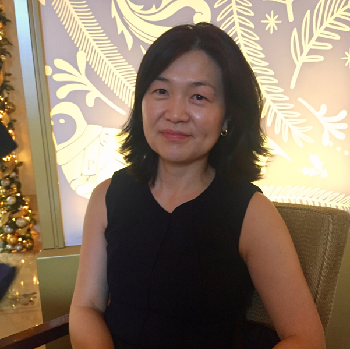Department of Global Language Education Office, Hokma College

One of the rewards of being a teacher is watching students have a “eureka moment” as they process and understand information, and reading their writing is especially satisfying. When students write about what they know, their understanding, character, humor, and even their wisdom shines through.
For instance, a simple essay written by a student prompted me to seek out a review of an independent film I had never heard of because her descriptions of the plot made me laugh out loud. In a more complex paper written for my Research Writing course, a student traced the history of feminism in Korea. Her compassionate and thoughtful analysis of the many struggles Korean women have faced inspired me to learn more about their experiences.
However, writing a good research paper or even a simple essay is not easy, especially for students who are writing in a second or foreign language. Sometimes, even with great effort, students get poor grades so they become disappointed and dislike the writing process. Fortunately, there are some things that students can do to manage their writing process and get better results.
An important first step in writing a good paper is to understand the purpose of the writing assignment. Is the paper a summary, a report, an essay, or a research paper? First, a summary is a concise statement of the main points, so it is often assigned as homework to check students’ general understanding. For example, a summary of a novel provides a brief description of the plot and its main characters.
Second, while “report” is often used as a blanket term for most academic papers in Korea, it is a specific type of paper. For example, a report details what has been observed, heard, or done during a scientific experiment or a survey, so it is a type of paper students will likely write in natural science or statistics courses.
The third type of paper is the essay, also called composition, may be the most common type of paper students write in university. It is a short piece of writing on a specific topic where writers explore ideas in different ways.
For instance, students studying Shakespeare’s plays may compare and contrast two characters such as King Duncan and King Lear to analyze how they are similar and different. Next, students studying political movements who want to understand why the rise of Nationalism is dangerous may analyze its causes and its effects. On the other hand, if a student wants to convince her readers that following a vegan diet is not very difficult, she would write a persuasive/argumentative essay.
Another important step to writing a good paper is to read as much as possible and know where to find information. While students often have basic knowledge to write short, simple essays, writing longer research papers requires extensive information. Research papers may be assigned in various forms. Term papers assess students’ understanding of subjects studied throughout the semester, so much of its content is usually supported with information citied from the source materials covered in class. In addition, there are resources offered by the Central Library.
These courses help students understand how to search for different academic sources such as books, journal articles, and dissertations. While it may seem easier to do a Google search, a library search can yield better results and save time in the long run.
As students learn to become better writers, they will be rewarded with some important benefits. By taking the time to gather and sort information, students can reflect on all of the interesting things that they have learned from some of the great courses they have taken.
Such reflection can help students become more self-aware about their own knowledge, so they can appreciate what they know and fill in necessary gaps. In addition, the process of writing allows students to connect seemingly discrete ideas in cogent ways, so they can form new thoughts to create new perspectives. Finally, it can give students opportunities to evaluate what they learn, so they can understand its value relative to their own needs and values.

